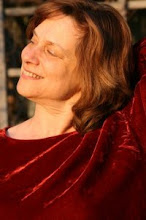Writing about BPD reminded me of one inspiration for the novel I’m working on. (A novel is so grueling I believe multiple lines of inspiration are needed in order to write the thing.) In grad school I read that borderline personality disorder was regarded as a “modern” phenomenon; the sense of “emptiness” that dominated someone’s inner experience was seen as the consequence of an individualistic culture in which people expect to be “filled” with consumer goods and seek wellbeing in a social/spiritual/identity marketplace. This is in contrast to Freud’s prototype, the late Victorian “hysteric”, whose maladies evolved in a sexually repressed, socially constricted culture. Here's an article from back then. Can’t believe I remembered it so clearly after all this time!
So this is how it all connects: A few years ago I was reading about my grandmother’s psychoanalyst, Fritz Wittels, and grew fascinated with a love triangle that proved pivotal in his life. Fritz and his buddy Karl Kraus (see last post) claimed to have found the “ideal woman”, since she was free with her body and lacked the usual neuroses about sexuality. The young woman in question, a would-be actress named Irma, seemed to me a very modern figure, and from the way she moved through the world—impulsively, erratically, with alternating swagger and dread—put me in mind of someone with BPD. I posed the question: what would happen to a BPD character stranded in Freud’s Vienna with a bunch of neurotics? That’s one thread woven into the novel.
 Tony has been photographing doors in Old Jaffa. He pointed me to a quote from the artist/creator of this door, Ran Morin: “I am dealing with earth and olive trees and actual places where there are borders. A Palestinian once told me, ‘Okay we don’t have to fight over the land; we can grow the trees in the sky’.”
Tony has been photographing doors in Old Jaffa. He pointed me to a quote from the artist/creator of this door, Ran Morin: “I am dealing with earth and olive trees and actual places where there are borders. A Palestinian once told me, ‘Okay we don’t have to fight over the land; we can grow the trees in the sky’.”




